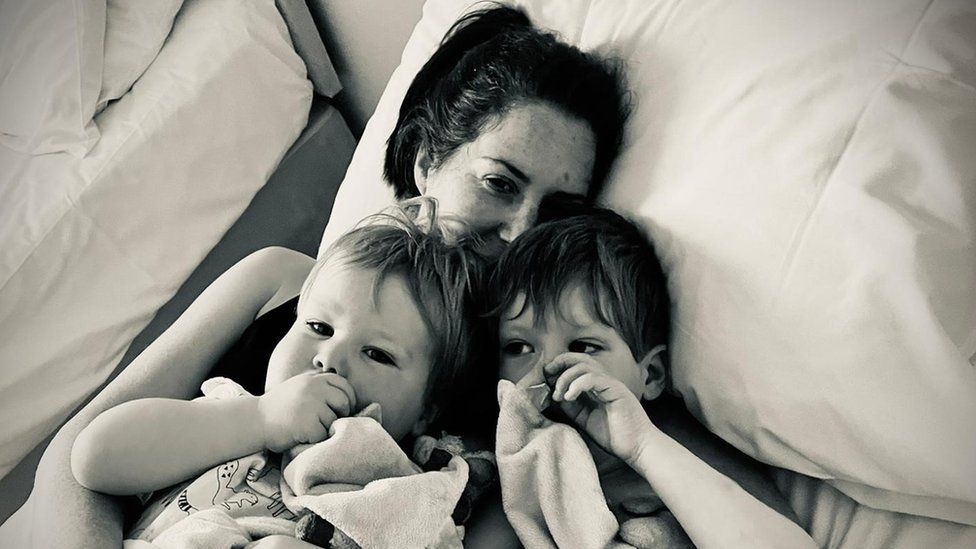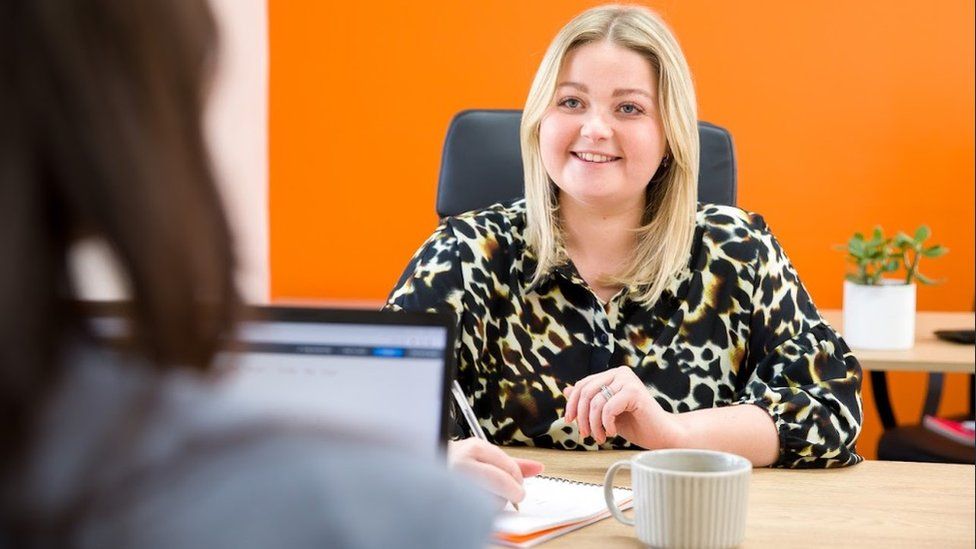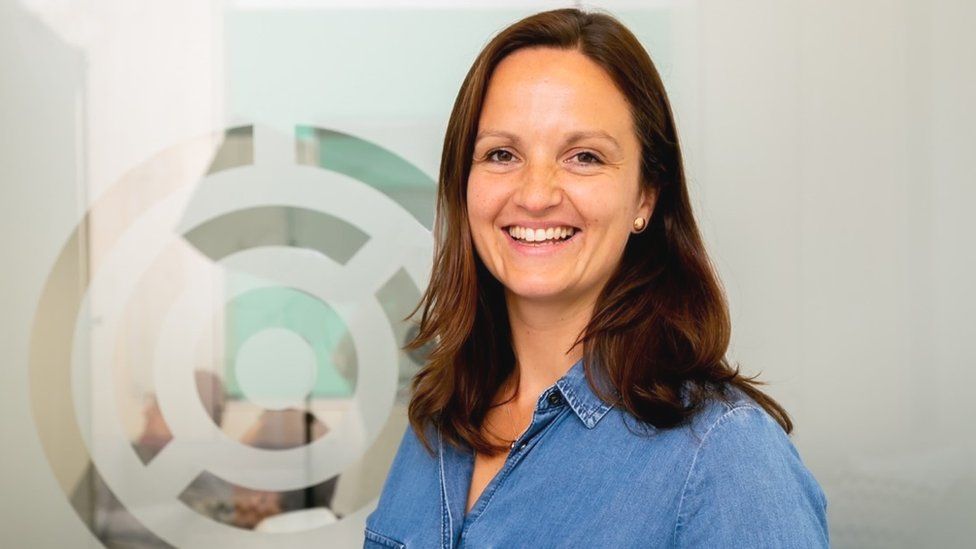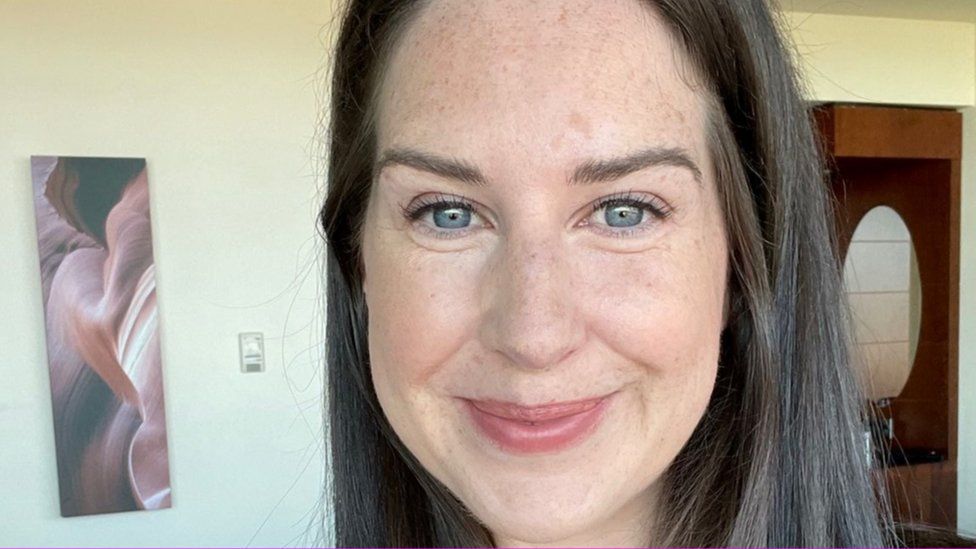Susannah Dale struggled to adjust five years ago when she gave birth to her first child.
Motherhood, she says, "hit me like a ton of bricks.". "I struggled with bonding, breastfeeding, and the early days' monotony. ".
She claims it took her three years, a second child, and counseling to finally get help.
It aided her in finding answers as to why she had experienced difficulty adjusting to motherhood and encouraged her to do so.
Susannah started interviewing mothers and scouring the internet to learn more about the effects motherhood was having on women, particularly on their careers.
It ultimately inspired her to start, a social enterprise that urges businesses all over the UK to create environments that are as supportive as possible for expectant workers and new mothers.
The Equality and Human Rights Commission's research, which claimed that at least 54,000 women a year in the UK were forced out of the workforce after becoming pregnant, piqued Susannah's interest.
A survey by HR tech company Culture Shift revealed that 25% of expectant mothers feared "negativity" from colleagues and managers if they revealed they were pregnant, which raised additional concerns for her.

Additionally, Susannah would come across the term "matrescence," which was coined 50 years ago by anthropologist Dana Raphael to describe the difficult and transformative process of becoming a mother.
She explains that "matrescence" is the term used to describe the physical, psychological, and emotional changes that occur after having a child.
"This is difficult to manage on its own, but it can be even more stressful if you also worry about going on and coming back from maternity leave. ".
Susannah, a Glasgow resident, has been pleading with businesses for several months to commit to a number of wellbeing measures that go far beyond the law's mandates for maternity leave.
The pledge, which is broken down into five "pillars," has already been signed by more than a dozen UK companies, ranging in size from 20 to 200 employees.

One of them is helping staff members "maintain an emotional connection with the workplace so they do not feel anxious about being on maternity leave and their ensuing return to work" and another is helping them "create a maternity leave and return to work plan for employees.".
Susannah thinks that current policies regarding maternity leave frequently fall short of ideal standards.
"Even though there are laws, statistics and stories show that they don't always work as well as they could in protecting jobs and providing financial support because they don't take into account the society we live in, the needs of mothers, or the profound experience of motherhood.
We hope to see more women in leadership positions by encouraging mothers to stay in the workforce if they choose to do so through the Maternity Pledge. ".
Susannah claims that the "matrescence pack," which addresses "the aspects of motherhood that tend to be glossed over in pregnancy but can affect mental health," is given to expectant employees of companies that sign up.
It addresses problems with breastfeeding and how matrescence affects relationships with partners.
Companies that have already made the pledge appear to support its objectives wholeheartedly.

Megan Dorian, a PR executive based in Chelmsford, expresses her pleasure at participating in the project.
My first child was just over a year old when I started Orange PR and Marketing, and I knew that one of the company's top priorities should be to foster an inclusive culture that not only supports but also embraces parents in their journey.
"There is still a stigma surrounding women who have children, take a career "break," which is definitely not a break, and then go back to work. I am a strong supporter of dispelling this stigma. ".
Chief operating officer of the advisory, legal, and accounting firm Dragon Argent in London, Jenny Jones, is a different supporter.

The hardest transition she has ever experienced, according to her, was becoming a mother.
It was challenging, to say the least, to transition from having confidence in your job and your life in general to staying at home and caring for a small, vulnerable person round-the-clock. .
We signed The Maternity Pledge because we care about helping all of our current and future parents navigate the frequently unsaid difficulties of juggling parenthood and careers. ".
According to Susannah, it's in everyone's best interest for businesses to provide new mothers with the greatest amount of flexibility and consideration for their well-being.
If communication, support, and empathy are improved, she claims, "maternity leave can work better for businesses and mothers.".
"Most women want to work, and given the cost of living, almost all women need to work, so it's critical to keep them in jobs where they feel appreciated and satisfied.
. "







